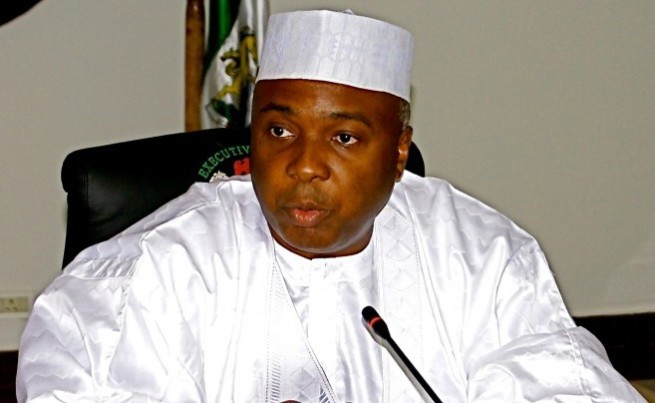False assets declaration suit against Saraki may be amended

There were indications at the weekend that the charges of false assets declaration, preferred against Senate President Bukola Saraki, by the Code of Conduct Bureau (CCB), Samuel Madujomo, may be amended again.
According to Vanguardngr, it learnt this in apparent reaction to what was the performance of the CCB witness at the hearing said to have been perceived as unimpressive at the hearing of the suit. So far, the prosecution has twice amended the charges against Saraki. When the trial of the Senate President commenced in 2015, the prosecution slammed a 13-count charge against the Senate President but, midway into the trial, the charges were amended from 13 to 16 and amended again to increase the charges from 16 to 18 in February 2016.
Inside sources in the Office of the Attorney General of the Federation and the CCB reporters at the weekend that following the confirmation by Madojemo, who is the Head of Investigation of the CCB, that Saraki actually declared his assets, including those of his wife and children, the Federal Government was considering amending the charges before the next sitting of the Code of Conduct Tribunal on April 5.
The Head of Investigation in the CCB had, during cross examination, affirmed that the Senate President actually declared his assets as required by law.
The witness admitted that Saraki’s assets were recorded in the Assets Forms he submitted to CCB at various times. Led in the cross-examination by Saraki’s counsel, Paul Erokoro (SAN), Madojemu was made to read out the list of assets declared by Saraki in his name, those of his wife and his children, when he held office as Kwara State governor and upon his assumption of office as a senator.
The witness told the tribunal that the investigation, which led to the arraignment of Saraki in 2015, was actually carried out by the operatives of the Economic and Financial Crimes Commission (EFCC).
He noted that his role and those of CCB were limited to the review of the EFCC’s report and compared same with the defendant’s Assets Declaration Form. He added that he was invited orally to join a team that reviewed the EFCC report and compared the asset form of Saraki, and that CCB had no written report on the outcome of the revision of the EFCC.









0 Comments